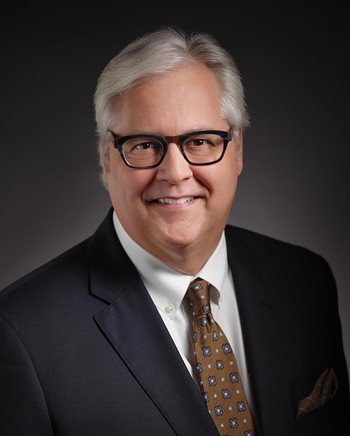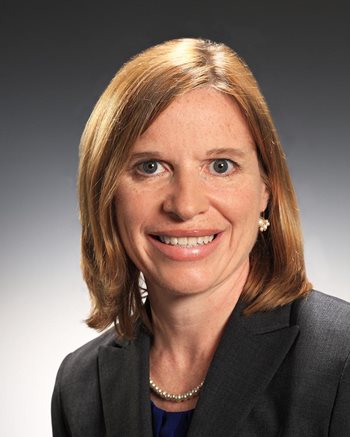
Born in Calgary, Alberta, Mr. Paul Dubé (he/him) spent his adolescence in Dalhousie, New Brunswick, where he was valedictorian of his high school graduating class. After high school, he attended the University of Ottawa and graduated with a bachelor’s degree in Political Science (B.A.). Mr. Dubé went on to earn a Bachelor of Laws (LL.B) at the University of Edinburgh in Scotland, followed by a Juris Doctor (J.D.) degree in law at the University of Windsor in Ontario.
While at the University of Windsor, Mr. Dubé was awarded the Cassels Brock and Blackwell Centennial Prize for Legal Practice Skills for his clinical work at Legal Assistance of Windsor (1991).
Following his admissions to the Law Society of Upper Canada and the Law Society of New Brunswick in 1992, Mr. Dubé began his legal career in private practice in New Brunswick. He specialized in criminal litigation and demonstrated an unwavering commitment to the protection of rights conferred by the Canadian Charter of Rights and Freedoms and the promotion of procedural fairness. Over the course of his legal career, Mr. Dubé gained a reputation as an effective advocate for all people, especially the economically disadvantaged.
A passion to promote access to justice motivated Mr. Dubé to be actively involved in the legal community, serving as President of the Restigouche Barristers Association (1993-2004), and as ad-hoc member of the Council of the Law Society of New Brunswick (1993-1998). He also served on the New Brunswick Legal Aid Committee (1992-2004) and participated in the establishment of the New Brunswick Legal Aid Services Commission (2004). Mr. Dubé taught the French section of the New Brunswick Bar Admission course on Criminal Procedure from 1997 to 2005.
As a result of his work with Legal Aid New Brunswick, Mr. Dubé was a co-recipient of the Canadian Bar Association Pro Bono Award in 2003. From 2000-2004, Mr. Dubé served as Vice-Chair and Alternate Chairperson of the New Brunswick Labour and Employment Board, where he conducted quasi-judicial hearings under that province’s Industrial Relations Act, Employment Standards Act, and Human Rights Act. His strong sense of fairness and impartiality were important assets in that role.
In 2008, Mr. Dubé was appointed federal Taxpayers’ Ombudsman and tasked with the creation of a new office to uphold the Taxpayer Bill of Rights and promote fairness in the Canada Revenue Agency’s treatment of, and service to, taxpayers. As an independent and impartial Taxpayers’ Ombudsman, Mr. Dubé oversaw the review of thousands of taxpayer complaints with a view to resolving them at the lowest level possible. He published five Annual Reports as well as eight Special Reports on systemic issues of fairness and service. All of his recommendations were accepted and implemented.
Mr. Dubé’s recommendation to the Minister of National Revenue also led to an amendment of the Taxpayer Bill of Rights and the addition of Article 16 (protection from reprisal) in June 2013.
In June 2021, Mr. Dubé was the recipient of the Ontario Bar Association’s Tom Marshall Award of Excellence for Public Sector Lawyers, honouring his contributions to public sector law in Ontario and beyond. “Paul Dubé's work is well known and admired throughout the international ombudsman community,” said Peter Tyndall, former president of the International Ombudsman Institute. “His commitment to public service values is exemplary and his contribution to improving public services in Ontario is entirely worthy of this recognition. Paul is also a highly valued contributor and a leading figure in the global ombudsman community and his support for colleagues and training programs is particularly noteworthy.”
Mr. Dubé continues to be actively involved in the ombudsman community. He has been President of the North American chapter of the International Ombudsman Institute since November 2016 and served as the President of the Canadian Council of Parliamentary Ombudsman (CCPO) from 2022 to 2023. He also served two terms as a member of the Board of Directors of the Forum of Canadian Ombudsman. He was sworn in as Ontario's seventh Ombudsman on April 1, 2016. Mr. Dubé was appointed to a second five-year term as Ombudsman as of April 1, 2021.

Ms. Finlay (she/her) has been involved in Ombudsman work for over 20 years and has been with the Office of the Ontario Ombudsman since 2005. As Deputy Ombudsman, she is responsible for the daily operations of the Ombudsman’s Office, including the investigation and resolution of more than 26,000 complaints per year from members of the Ontario public about provincial government services and the broader public sector. She was appointed Acting Ombudsman from September 15, 2015 to March 31, 2016, and played a key role in leading the Office as it took on the first major expansion of its mandate in 40 years to begin overseeing municipalities, universities, and school boards. She also played a lead role in steering the Office through its recent transition, expanding its mandate to include children and youth in care and French language services.
Ms. Finlay is active in training members of the Ombudsman community and regularly speaks to a wide variety of stakeholder groups on the role of the Ombudsman and the value that the institution can serve in promoting good governance and accountability and improving service to the public. She is also an active member of the Forum of Canadian Ombudsman and served on the organization’s Board of Directors from 2017 to 2019.
Prior to joining the Ontario Ombudsman’s office, Ms. Finlay served as the Director General of Operations for Canada’s first military Ombudsman. She was one of the original team members involved in the creation of the National Defence and Canadian Forces Ombudsman in 1998, and was directly involved in the setup and running of that office’s operations and the investigation of complaints concerning the treatment of Canada’s military personnel, veterans, and their families.
Ms. Finlay holds an undergraduate degree from the University of Ottawa in Social Sciences and Criminology. She graduated from the University of Ottawa Common Law Program in 1992 and was called to the bar in 1994. She has worked as an Assistant Crown Attorney and a part-time professor at the University of Ottawa, Faculty of Law, and as a part-time instructor in criminal and civil law at the Algonquin College Police Foundations Program.